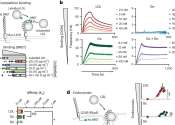Scientists reverse aging process in rat brain stem cells
New research, published today in Nature, reveals how increasing brain stiffness as we age causes brain stem cell dysfunction, and demonstrates new ways to reverse older stem cells to a younger, healthier state.
Aug 14, 2019
1
3398








